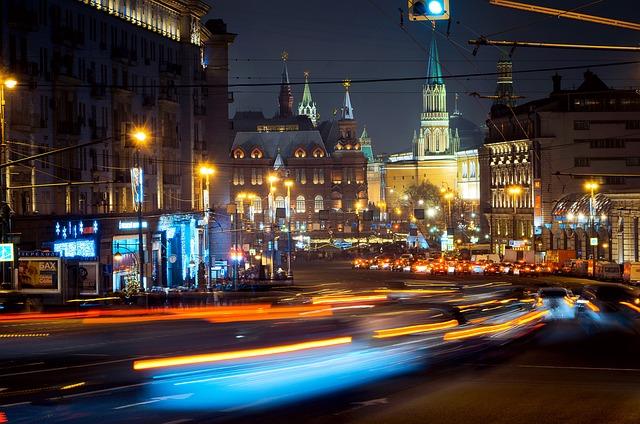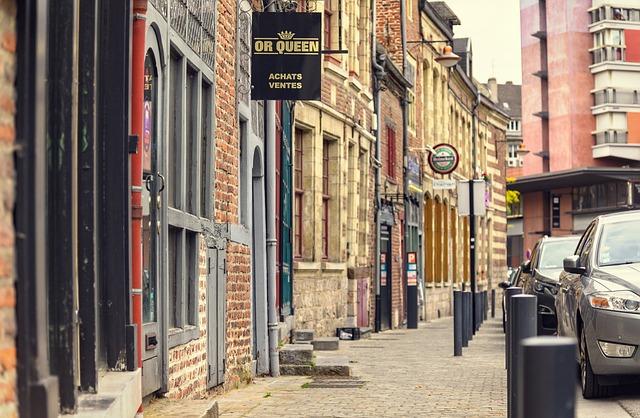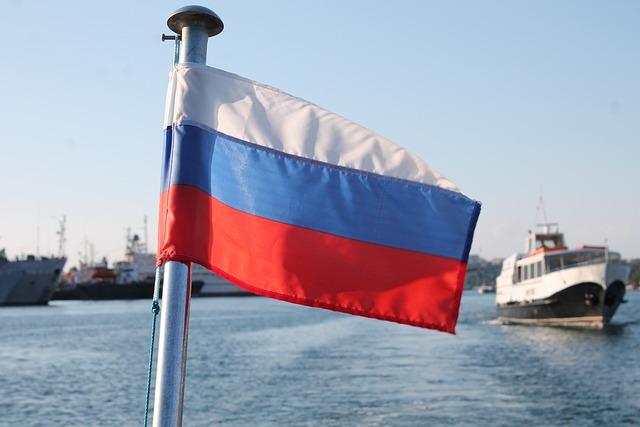Title: Unveiling RussiaŌĆÖs Expanding Influence in the central African Republic
As geopolitical dynamics continue to shift in the 21st century, the Central African republic (CAR) has emerged as a significant focal point of international intrigue. Amidst ongoing conflict and instability, Russia has cemented its presence in this resource-rich nation, raising questions about the implications of its growing footprint. The Moscow-backed engagements, ranging from military assistance to resource extraction, have not only altered the local power landscape but also attracted the attention of global stakeholders concerned about the sustainability of peace in the region. This article delves into the various dimensions of RussiaŌĆÖs influence in the Central African Republic, examining the motivations behind its involvement, the implications for regional stability, and the responses from both local actors and the international community. As the CAR navigates the choppy waters of foreign influence and internal strife, understanding Russia’s role becomes crucial in anticipating the future trajectory of this conflicted nation.
Assessing Russia’s Growing Military Presence in the Central African Republic

The Central African Republic (CAR) has witnessed a significant uptick in Russia’s military presence, which raises critical questions about the implications for regional stability and international relations. Moscow’s strategy appears multi-dimensional, encompassing not only bolstered military support but also economic interests and political influence. Russian military contractors, notably the Wagner Group, have expanded their footprint, engaging in various activities that range from arms trading to training local forces. This increasing presence is underpinned by several key factors:
- Strategic Resources: The CAR is rich in natural resources like diamonds and gold,which are of particular interest to russia.
- Geopolitical Leverage: Establishing a foothold in Africa enhances Russia’s global power dynamics, countering Western influence.
- Military Collaboration: Moscow’s agreements with the CAR government suggest a long-term commitment to military assistance and security cooperation.
Moreover, the ramifications of Russia’s actions in the CAR extend beyond mere military deployment. The potential for destabilization increases as local power struggles and civil conflicts may be exacerbated by the influx of foreign military resources. Furthermore, the integration of Russian firms into local economies raises concerns about exploitation and governance. To illustrate the evolving situation, here’s a brief overview of Russia’s military support mechanisms:
| Support Type | Description |
|---|---|
| Military Training | Providing local troops with operational skills and combat readiness. |
| Arms Supply | Delivering weaponry and equipment to bolster the CAR’s military capabilities. |
| Security Services | Deploying contractors for protection of mineral extraction sites and key officials. |
The Economic Dimensions of Russian Engagement in Central Africa

The economic interests driving RussiaŌĆÖs involvement in Central Africa, especially in the Central African Republic (CAR), are multifaceted and intertwined with geopolitical ambitions. The russian government seeks to expand its influence by capitalizing on the resource wealth of the region, which includes valuable minerals like gold, diamonds, and uranium. This has led to partnerships with local governments and private entities, as Russia aims to secure favorable economic contracts and gain a foothold in global supply chains. The strategic acquisition of these resources not only enhances RussiaŌĆÖs economic prospects but also serves to undermine Western dominance in the region.
Moreover, this engagement is characterized by a reshaping of the security and military landscape. Russia provides military support in exchange for access to resource exploitation, often using private military contractors that further entrench its presence without direct governmental involvement. The economic benefits are evident in various sectors:
- Mineral extraction: Russian companies actively mine gold and diamonds, creating local jobs while increasing state revenues.
- Infrastructure development: Investments in infrastructure are tied to resource extraction, fostering economic growth and dependency.
- Trade agreements: Bilateral trade has surged, enhancing diplomatic ties and opening Central African markets to Russian goods and services.
| Area of Engagement | Type of Contribution | Impact |
|---|---|---|
| Mineral Mining | Mining Operations | Increased resource exports |
| Military Support | Training and Equipment | Enhanced security |
| Infrastructure | Construction Investments | economic development |
Impacts on Local Governance and Humanitarian Conditions

The infiltration of Russian influence in the Central African Republic has dramatically reshaped local governance structures, creating a complex interplay of power dynamics. As the government increasingly relies on Russian support for military and logistical purposes,key state functions are gradually being outsourced. This transformation has led to several notable outcomes:
- Weakening of state authority: Customary governance frameworks are undermined as local leaders increasingly defer to foreign advisors and mercenaries.
- Marginalization of civil society: Local organizations and NGOs find it challenging to operate within an environment dominated by Russian interests, limiting their ability to engage with communities.
- Corruption and resource mismanagement: The influx of external actors has exacerbated existing corruption, as Russian companies frequently enough prioritize profit over public welfare.
as humanitarian conditions deteriorate, the impact of this external influence becomes starkly evident, further complicating an already fragile situation. With security forces increasingly focused on maintaining authority under foreign guidance, the local population faces worsening crises:
- Displacement: Increased violence and instability lead to significant numbers of internally displaced persons.
- Human rights violations: Reports of abuses, including extrajudicial killings and unlawful detentions by foreign-backed forces, continue to rise.
- Lack of access to basic services: Health care and education systems remain underfunded, compounding the suffering of vulnerable communities.
Geopolitical Implications of Russian Influence in the Region

The growing presence of Russia in the Central African republic (CAR) reveals a complex web of geopolitical interests that extend far beyond simple economic gain. As Moscow continues to forge alliances with local militias and engage in military support, it finds a strategic foothold in a region traditionally dominated by Western influence. this shift not only alters the balance of power within CAR but also has implications for regional stability, prompting neighboring countries to reconsider their security strategies and diplomatic relations. In this context, Russia’s influence can be categorized into several key areas:
- Military Assistance: Russia’s provision of arms and training to local forces impacts CAR’s internal conflict dynamics.
- Economic Exploitation: Mining and resource extraction operations facilitated by Russian companies raise concerns about environmental and human rights violations.
- Geopolitical Rivalries: russia’s growing footprint counterbalances U.S.and French interests,potentially leading to a new Cold War-style rivalry in the region.
To better understand the implications of these developments, it’s crucial to analyze the collaborative framework established between Russian entities and the CAR government. This partnership has manifested in various forms, including military contracts and developmental aid, which are frequently enough shrouded in a veil of secrecy. The table below outlines some key details of this evolving relationship:
| Aspect | Details |
|---|---|
| Military Cooperation | Training of local forces; supply of arms |
| Economic Engagement | mining rights and resource exploitation |
| Political Relations | Support for CAR’s leadership; diplomatic recognition |
through this evolving partnership, Russia not only aims to secure strategic resources but also to enhance its geopolitical leverage in Africa.The implications of this new alliance extend beyond CAR’s borders,as it could inspire other nations in the region to pursue closer ties with Moscow,thereby reshaping the future of international relations in Central Africa.
Recommendations for International Response and Diplomatic Strategies

the international community must adopt a multifaceted approach to address the complexities of Russia’s influence in the Central African Republic (CAR). Diplomatic engagement should focus on strengthening ties with regional organizations such as the African Union and economic Community of Central African States (ECCAS), leveraging their local understanding to enhance peacekeeping initiatives. Additionally, countries should work collaboratively to impose targeted sanctions on entities that support Russian interests, disincentivizing further exploitation of CAR’s resources and political landscape. Key actions could include:
- Enhancing Support for Civil Society: This empowers grassroots movements that advocate for transparency and accountability.
- Fostering Economic Investment: Partnering with credible firms to promote enduring development, reducing dependency on external powers.
- Promoting Diplomatic Dialogues: creating platforms for dialog among conflicting factions to address underlying grievances.
Moreover, a coordinated strategy should include robust humanitarian assistance aimed at addressing the needs of marginalized communities negatively affected by ongoing conflicts. Efforts must also emphasize capacity building for CAR’s governmental institutions, enabling them to operate independently of foreign influence. A table illustrating potential stakeholders and their roles could enhance clarity:
| Stakeholder | Role | Possible Contributions |
|---|---|---|
| United Nations | Peacekeeping and Monitoring | Enhanced security measures & independent assessments |
| African Union | Regional Mediation | Crisis management & conflict resolution strategies |
| NGOs | Humanitarian Aid | Resource distribution & community engagement |
Strengthening Local Resilience against External Interference

To fortify communities against external manipulation, it is crucial to enhance local governance structures and foster civic engagement. Empowering local leaders and institutions can create a bulwark against foreign interference. This can be achieved by:
- Promoting transparency in local governance to build trust among citizens.
- Facilitating open forums for discussion of national and local issues, enabling citizens to voice their concerns.
- Encouraging educational programs that raise awareness of the effects of foreign influences on local affairs.
moreover, establishing strong local networks that can communicate and coordinate responses to external pressures is vital. These networks can help streamline local responses and mobilize community resources effectively. Key strategies include:
- forming coalitions between civil society organizations and local businesses to develop a united front.
- Training community leaders to recognize and respond to the tactics used by foreign entities.
- Building economic resilience by diversifying local economies and reducing dependency on external resources.
To Conclude
Russia’s growing influence in the Central African Republic presents a complex interplay of geopolitics, security concerns, and economic interests. As Moscow seeks to expand its footprint on the african continent, the implications for regional stability and international relations are profound. The collaboration between Russian mercenaries and local authorities, alongside the provision of military support, underscores a strategic partnership that raises questions about sovereignty and the long-term impact on the CAR’s governance.
As the situation evolves, it will be crucial for the international community to monitor these developments closely. Understanding the dynamics of Russia’s involvement not only sheds light on the struggles of the Central african Republic but also highlights broader trends in global power shifts. The stakes are high, and the potential for both conflict and cooperation must be navigated with care as the CAR strives for peace and development amidst external influences.







